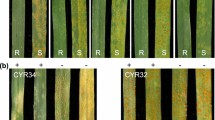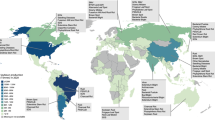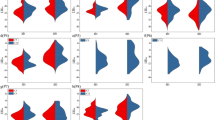Abstract
Tomato is the world’s second largest cultivated vegetable crop. Tomato spotted wilt virus (TSWV) and fusarium wilt (FW) are the two major biotic stresses in India limiting tomato production. Identification and utilization of resistant lines to realize the full genetic potential of varieties for yield gain is an eco-friendly approach. The present research work involved genetic diversity study of 48 genotypes, augmented from different exotic, and indigenous sources belonging to three species using SSR markers. A total of 195 alleles were generated by employing 84 polymorphic markers. The PIC value was ranged from 0.12 to 0.93. Two sub-populations (K = 2) were revealed by model based structure analysis. The cluster analysis using the UPGMA method classified the genotypes into 6 clusters. Pusa Ruby, EC-310310 and EC-620452 were found to be highly diverse. Molecular characterization of 48 genotypes with SSR markers divulged seven genotypes with Sw-5 gene and nine genotypes with I-2 gene showing resistance to TSWV and FW, respectively and further, on artificial screening, they were found to be phenotypically resistant. Out of 195 alleles generated from 84 polymorphic SSR markers, 43 alleles from 26 SSR markers were identified with positive average allele effect distributed across nine chromosomes and positive average allele effect was identified for the average weight of the fruit, the number of fruits formed per plant, and fusarium wilt PDI score. Fruit weight and fruit yield per plant registered a significant and positive correlations. The identified genotypes with varied backgrounds and performances will be very useful as diversified sources in resistant breeding programs of tomato.







Similar content being viewed by others
Availability of data and materials
The data that support the findings of this study are available from the corresponding author upon request.
References
Aflitos S, Schijlen E, de Jong H, de Ridder D, Smit S, Finkers R (2014) Exploring genetic variation in the tomato (Solanum section Lycopersicon) clade by whole-genome sequencing. Plant J 80(1):136–148. https://doi.org/10.1111/tpj.12616
Agrios GN (2005) Plant pathology, 5th edn. Elsevier Academic Press, Burlington, pp 79–103. https://doi.org/10.1023/A:1017506213974.
Aguirre N, López W, Orozco-Cárdenas M, Coronado YM, Vallejo-Cabrera F (2017) Use of microsatellites for evaluation of genetic diversity in cherry tomato. Bragantia 76(2):220–228. https://doi.org/10.1590/1678-4499.116
Alvarez AE, van de Wie CCM, Smulders MJM (2001) Use of microsatellites to evaluate genetic diversity and species relationships in the genus Lycopersicon. Theor Appl Genet 103:1283–1292. https://doi.org/10.1007/s001220100662
Gupta A, Dwivedi AK, Nagwanshi A, Dwivedi BS, Vishwakarma AK (2019) Impact of Long Term application of inorganic fertilizer and farmyard manure on Productivity of Soybean in Vertisol. Bull Env Pharmacol Life Sci 8(4):123–127
Arens P, Mansilla C, Deinum D, Cavellini L, Moretti A, Rolland S, van der Schoot H, Calvache D, Ponz F, Collonnier C, Mathis R (2010) Development and evaluation of robust molecular markers linked to disease resistance in tomato for distinctness, uniformity and stability testing. Theor Appl Genet 120(3):655–664. https://doi.org/10.1007/s00122-009-1183-2
AVRDC Data base, https://avrdc.org/download/seed/cat-process-tomato/AVTO9802.pdf
Awady MA, El-Tarras AA, Hassan MM (2012) Genetic diversity and DNA fingerprint study in tomato (Solanum lycopersicum L) cultivars grown in Egypt using simple sequence repeats (SSR) markers. Afr J Biotech 11(96):16233–16240. https://doi.org/10.5897/AJB12.2477
Benor S, Zhang MY, Wang ZF, Zhang HS (2008) Assessment of genetic variation in tomato (Solanum lycopersicum L.) inbred lines using SSR molecular markers. J Genet Genom 35:373–379. https://doi.org/10.1016/S1673-8527(08)60054-5
Bhuvaneswari V, Nagini S (2005) Lycopene: a review of its potential as an anticancer agent. Curr Med Chem Anticancer Agents 5(6):627–635. https://doi.org/10.2174/156801105774574667
Bolger A, Scossa F, Bolger ME, Lanz C, Maumus F, Tohge T, Quesneville H, Alseekh S, Sørensen I, Lichtenstein G, Fich EA (2014) The genome of the stress-tolerant wild tomato species Solanum pennellii. Nat Genet 46(9):1034. https://doi.org/10.1038/ng.3046
Botstein D, White RL, Skolnick M, Davis RW (1980) Construction of a genetic linkage map in man using restriction fragment length polymorphisms. Am J Human Genet 32(3):314
Benjamini Y, Hochberg Y (1995) Controlling the false discovery rate—a practical and powerful approach to multiple testing. J R Stat Soc B 57:289–300
Bredemeijer M, Cooke J, Ganal W, Peeters R, Isaac P, Noordijk Y, Rendell S, Jackson J, Roder S, Wendehake K, Dijcks M, Amelaine M, Wickaert V, Bertrand L, Vosman B (2002) Construction and testing of a micro satellite containing more than 500 tomato varieties. Theor Appl Genet 105:1019–1026. https://doi.org/10.1007/s00122-002-1038-6
Chaerani R, Smulders MJM, van der Linden CG, Vosman B, Stam P, Voorrips RE (2007) QTL identification for early blight resistance (Alternaria solani) in a Solanum lycopersicum x S. arcanum cross. Theor Appl Genet 114:439–450. https://doi.org/10.1007/s00122-006-0442-8
Chen J, Wang H, Shen H, Chai M, Li J, Qi M, Yang W (2009) Genetic variation in tomato populations from four breeding programs revealed by single nucleotide polymorphism and simple sequence repeat markers. Sci Hortic 122(1):6–16. https://doi.org/10.1016/j.scienta.2009.03.025
Cooke RJ, Bredemeijer GMM, Ganal MW, Peeters R, Isaac P, Rendell S, Jackson J, Röder MS, Korzun V, Wendehake K, Areshchenkova T (2003) Assessment of the uniformity of wheat and tomato varieties at DNA microsatellite loci. Euphytica 132(3):331–341. https://doi.org/10.1023/A:1025046919570
Earl DA, VonHoldt BM (2012) STRUCTURE HARVESTER: a website and program for visualizing STRUCTURE output and implementing the Evanno method. Conser Genet Resour 4:359–361. https://doi.org/10.1007/s12686-011-9548-7
Evanno G, Regnaut S, Goudet J (2005) Detecting the number of clusters of individuals using the software STRUCTURE: a simulation study. Mol Ecol 14:2611–2620. https://doi.org/10.1111/j.1365-294X.2005.02553.x
Frary A, Xu Y, Liu J, Mitchell S, Tedeschi E, Tanksley S (2005) Development of a set of PCR-based anchor markers encompassing the tomato genome and evaluation of their usefulness for genetics and breeding experiments. Theor Appl Genet 111:291–312. https://doi.org/10.1007/s00122-005-2023-7
Frary A, Gol D, Keles D, Okmen B, Pinar H, Sigva HO, Yemenicioglu A, Doganlar S (2010) Salt tolerance in Solanum pennellii: antioxidant response and related QTL. BMC Plant Biol 10:58. https://doi.org/10.1007/s10535-011-0111-x
Frusciante L, Carli P, Ercolano MR, Pernice R, Di Matteo A, Fogliano V, Pellegrini N (2007) Antioxidant nutritional quality of tomato. Mol Nutr Food Res 51(5):609–617. https://doi.org/10.1002/mnfr.200600158
Garcia-Martinez S, Andreani L, Garcia-Gusano M, Geuna F, Ruiz JJ (2005) Evolution of amplified length polymorphism and simple sequence repeats for tomato germplasm fingerprinting: utility for grouping closely related traditional cultivars. Genome 49:648–656. https://doi.org/10.1139/g06-016
Glogovac S, Takač A, Brbaklić L, Trkulja D, Červenski J, Gvozdanović-Varga J, Popović V (2013) Molecular evaluation of genetic variability in tomato (Lycopersicon esculentum Mill.) genotypes by microsatellite markers. Ratarstvo i Povrtarstvo 50(3):1–5. https://doi.org/10.5937/ratpov50-4344
He C, Poysa V, Yu K (2003) Development and characterization of simple sequence repeat (SSR) markers and their use in determining relationships among Lycopersicon esculentum cultivars. Theor Appl Genet 106:363–373. https://doi.org/10.1007/s00122-002-1076-0
Henareh M, Dursun A, Abdollahi-Mandoulakani B, Haliloğlu K (2016) Assessment of genetic diversity in tomato landraces using ISSR markers. Genetika 48(1):25–35. https://doi.org/10.2298/GENSR1601025H
Jaafar U, Aliero AA, Shehu K, Abubakar L (2018) Genetic diversity in tomato genotypes (Solanum lycopersicum) based on salinity responsive candidate gene using simple sequence repeats. Int Lett Nat Sci. https://doi.org/10.18052/ww.scipress.com/ILNS.72.37
Juliatti FC, Maluf WR, Figueira AR (1994) Reação de linhagens avançadas de tomateiro a isolados de tospovirus. Fitopatol Bras 19:62–68
Kaushal A, Singh A, Jeena AS (2017) Genetic diversity in tomato (Solanum lycopersicum L.) genotypes revealed by simple sequence repeats (SSR) markers. J Nat Appl Sci 9(2):966–973. https://doi.org/10.31018/jans.v9i2.1305
Kochevenko A, Fernie AR (2011) The genetic architecture of branched-chain amino acid accumulation in tomato fruits. J Exp Bot 62:3895–3906. https://doi.org/10.1093/jxb/err091
Kwon YS, Park EK, Bae KM, Park SG, Cho IH (2006) Use of simple sequence repeat (SSR) markers for variety identification of tomato, Lycopersicum esculentum. Korean J Plant Biotech 33:289–295. https://doi.org/10.5010/JPB.2006.33.4.289
Kwon YS, Park SG, Yi SI (2009) Assessment of genetic variation among commercial tomato (Solanum lycopersicum L) varieties using SSR markers and morphological characteristics. Genes Genom 31(1):1–10. https://doi.org/10.1007/BF03191132
Laterrot H (1976) Localisation chromosomique de I2 chez la tomate controlant la resistance au pathotype 2 de Fusarium oxysporum f.sp. lycopersici. Ann Amelior Plant 26:485–491
Mazzucat A, Papa R, Bitocchi E, Mosconi P, Nanni L, Negri V, Picarella ME, Siligato F, Soressi GP, Tiranti B, Veronesi F (2008) Genetic diversity, structure and marker-trait associations in a collection of Italian tomato (Solanum lycopersicum L.) landraces. Theor Appl Genet 116(5):657–669. https://doi.org/10.1007/s00122-007-0699-6
Miller JC, Tanksley SD (1990) RFLP analysis of phylogenetic relationships and genetic variation in the genus Lycopersicon. Theor Appl Genet 80(4):437–448. https://doi.org/10.1007/BF00226743
Mohamed AM, El-Awady AAE, El-Tarras MMH (2012) Genetic diversity and DNA fingerprint study in tomato (Solanum lycopersicum L.) cultivars grown in Egypt using simple sequence repeats (SSR) markers. African J Biotechnol 11(96):16233–16240. https://doi.org/10.5897/AJB12.2477ISSN1684-5315
Murray MG, Thompson WF (1980) Rapid isolation of high molecular weight plant DNA. Nucleic Acids Res 8(19):4321–4326. https://doi.org/10.1093/nar/8.19.4321
Narshimulu G, Jamaloddin M, Vemireddy LR, Anuradha G, Siddiq E (2011) Potentiality of evenly distributed hypervariable microsatellite markers in marker assisted breeding of rice. Plant Breed 130(3):314–320. https://doi.org/10.1111/j.1439-0523.2010.01834.x
Pailles Y, Ho S, Pires IS, Tester M, Negrão S, Schmöckel SM (2017) Genetic diversity and population structure of two tomato species from the Galapagos Islands. Front Plant Sci 8:138. https://doi.org/10.3389/fpls.2017.00138
Parankusam S, Adimulam SS, Bhatnagar-Mathur P, Sharma KK (2017) Nitric oxide (NO) in plant heat stress tolerance: current knowledge and perspectives. Front Plant Sci 8:1582. https://doi.org/10.3389/fpls.2017.01582
Park YH, West MA, Clair DA (2004) Evaluation of AFLPs for germplasm fingerprinting and assessment of genetic diversity in cultivars of tomato (Lycopersicon esculentum L.). Genome 47(3):510–518. https://doi.org/10.1139/g04-004
Parrella G, Ruffel S, Moretti A, Morel C, Palloix A, Caranta C (2002) Recessive resistance genes against potyviruses relocalized in colinear genomic regions of the tomato (Lycopersicon spp.) and pepper (Capsicum spp.) genomes. Theor Appl Genet 105:855–861. https://doi.org/10.1007/s00122-002-1005-2
Peakall R, Smouse PE (2012) GenAlEx 6.5: genetic analysis in Excel. Population genetic software for teaching and research: an update. Bioinformatics 28:2537–2539. https://doi.org/10.1093/bioinformatics/bts460
Pidigam S, Munnam SB, Nimmarajula S, Gonela N, Adimulam SS, Yadla H, Bandari L, Amarapalli G (2019) Assessment of genetic diversity in yardlong bean (Vigna unguiculata (L.) Walp subsp. sesquipedalis Verdc.) germplasm from India using RAPD markers. Genet Resour Crop Evol 66:1231–1242
Price DL, Memmott FD, Scott JW, Olson SM, Stevens MR (2007) Identification of molecular markers linked to a new Tomato spotted wilt virus resistance source in tomato. Tomato Genetics Cooperative Reporter 57
Pritchard JK, Stephens M, Donnelly P (2000) Inference of population structure using multilocus genotype data. Genetics 155:945–959
Pritesh P, Vishal P, Oza V, Chauhan AD, Patel KB, Kathiria SRB (2010) Genetic diversity and DNA fingerprint study of tomato discerned by SSR markers. Int J Biotechnol Biochem 6(5):657–666. https://doi.org/10.5897/AJB12.2477
R Core Team (2012) R: a language and environment for statistical computing (version 3.5.3) [software]. http://www.R-project.org. Accessed 24 Apr 2021
Raut RL, Naidu AK, Jain PK (2005) Correlation studies in tomato (Lycopersicon esculentum Mill.). South Indian Hort 53(1–6): 258–260.
Raveendar S, Chung JW, Lee GA, Lee JR, Lee KJ, Shin MJ, Cho YH, Ma KH (2016) Genetic diversity and population structure of Asian tomato accessions based on simple-sequence repeats. Plant Breed Biotechol 4(3):306–314. https://doi.org/10.9787/PBB.2016.4.3.306
Rick C, Tanksley S (1981) Genetic variation in Solanum pennellii: comparisons with two other sympatric tomato species. Plant Syst Evol 139:11–45. https://doi.org/10.1007/BF00983920
Robbins MD, Masud MA, Panthee DR, Gardner RG, Francis DM, Stevens MR (2010) Marker-assisted selection for coupling phase resistance to tomato spotted wilt virus and Phytophthora infestans (late blight) in tomato. HortSci 45(10):1424–1428
Rohlf FJ (2000) NTSYS-pc: numerical taxonomy and multivariate analysis system Version 2.1. Exeter Publishing Setauket, New York
Rosello S, Ricarte B, Diez MJ, Nuez F (2001) Resistance to tomato spotted wilt virus introgressed from Lycopersicon peruvianum in line UPV 1 may be allelic to Sw-5 and can be used to enhance the resistance of hybrid cultivars. Euphytica 119:357–367. https://doi.org/10.1023/a:1017506213974
Saidaiah P, Munnam SB, Nimmarajula S, Amarapalli G, Sudini HK, Pandravada SR, Yadla H (2021) Molecular characterization of Indian Dolichos bean (Lablab purpureus L. var typicus Prain) accessions using RAPD markers. Indian J Genet Plant Breed 81(2):322–326. https://doi.org/10.31742/IJGPB.81.2.15
Saidi M, Warade SD (2008) Tomato breeding for resistance to Tomato spotted wilt virus (TSWV): an overview of conventional and molecular approaches. Czech J Genet Plant Breed 44(3):83–92. https://doi.org/10.17221/47/2008-CJGPB
San Y, Jatoi SA, Fujimura T, Yamanaka S, Watanabe J, Watanabe KN (2008) Potential loss of unique genetic diversity in tomato landraces by genetic colonization of modern cultivars at a non-center of origin. Plant Breed 127(2):189–196. https://doi.org/10.1186/1471-2164-14-835
Saravanan KR, Ranjith R, Renganathan P (2014) Studies on genetic diversity using SSR marker associated traits in tomato genotypes (Lycopersicum esculentum L). European J Biotechol Biosci 1(5):26–29
Sardaro MLS, Marmiroli M, Maestri E, Marmiroli N (2013) Genetic characterization of Italian tomato varieties and their traceability in tomato food products. Food Sci Nutr 1(1):54–62. https://doi.org/10.1002/fsn3.8
Sarfatti M, Katan J, Fluhr R, Zamir D (1989) An RFLP marker in tomato linked to the Fusarium oxysporum resistance gene I2. Theor Appl Genet 78(5):755–759. https://doi.org/10.1007/BF00262574
Schauer N, Semel Y, Balbo I, Steinfath M, Repsilber D, Selbig J, Pleban T, Zamir D, Fernie AR (2008) Mode of inheritance of primary metabolic traits in tomato. Plant Cell 20(3):509–523. https://doi.org/10.1105/tpc.107.056523
Shi A, Vierling R, Grazzini R, Chen P, Caton H, Panthee D (2011) Identification of molecular markers for Sw-5 gene of tomato spotted wilt virus resistance. Am J Biotechol Mol Sci 1(1):8–16. https://doi.org/10.5251/ajbms.2011.1.1.8.16
Sim SC, Van Deynze A, Stoffel K et al (2012) High density SNP genotyping of tomato (Solanum lycopersicum L.) reveals patterns of genetic variation due to breeding. PLoS ONE 7(9):e45520. https://doi.org/10.1371/journal.pone.0045520
Simons G, John G, Jelle W, Martin R, José G, Paul D, Theo V, Marjo B, Joke O, Michiel B, Michel H, Jurriaan M, Ben C, Marc Z, Pieter V (1998) Dissection of the Fusarium I-2 gene cluster in tomato reveals six homologs and one active gene copy. Plant Cell 10 (6): 1055–1068. https://doi.org/10.1105/tpc.10.6.1055
Singh P, Singh S, Cheema DS, Dhaliwal MS (2002) Genetic variability and correlation study of some heat tolerant tomato genotypes. Veg Sci 29:68–70
Stall RE, Walter JM (1965) Selection and inheritance of resistance in tomato to isolates of races 1 and 2 of the Fusarium wilt organism. Phytopathology 55:1213–1215
Steinhauser MC, Steinhauser D, Koehl K, Carrari F, Gibon Y, Fernie AR, Stitt M (2010) Enzyme activity profiles during fruit development in tomato cultivars and Solanum pennellii. Plant Physiol 153:80–98. https://doi.org/10.1104/pp.110.154336
Stevens MR, Scott SJ, Gergerich RC (1991) Inheritance of a gene for resistance to tomato spotted wilt virus (TSWV) from Lycopersicon peruvianum Mill. Euphytica 59:9–17
Tabassum N, Sony SK, Bhajan SK, Islam MN (2013) Analysis of genetic diversity in eleven tomato (Lycopersicon esculentum Mill.) varieties using RAPD markers. Plant Tissue Cult Biotechol 23(1):49–57. https://doi.org/10.3329/ptcb.v23i1.15559
Ullah MZ, Hassan L, Sonia BS, Patwary AK (2015) Variability and inter relationship studies in tomato (Solanum lycopersicum L.). J Bangl Agril Univ 13(1):65–69
Velpula PK, Parihar DS, Pinnamaneni R (2017) Genetic diversity analysis of ripening specific genotypes using potential public domain SSR markers in tomato (Solanum Lycopersicum). J Plant Breed Genet 5(2):39–44
Wang T, Zou QD, Qi SY, Wang XF, Wu YY, Liu N, Zhang YM, Zhang ZJ, Li HT (2016) Analysis of genetic diversity and population structure in a tomato (Solanum lycopersicum L.) germplasm collection based on Single Nucleotide Polymorphism markers. Genet Mol Res 15(3):1–12. https://doi.org/10.4238/gmr.15038209
Xu J, Driedonks N, Rutten MJM, Vriezen WH, de Boer GJ, Rieu I (2017) Mapping quantitative trait loci for heat tolerance of reproductive traits in tomato (Solanum lycopersicum). Mol Breed. https://doi.org/10.1007/s11032-017-0664-2
Yang WC, Sacks E, Ivey MLL, Miller SA, Francis DM (2005) Resistance in Lycopersicon esculentum intraspecific crosses to race T1 strains of Xanthomonas campestris pv. vesicatoria causing bacterial spot of tomato. Phytopathology 95:519–527. https://doi.org/10.1094/PHYTO-95-0519
Yogendra KN, Gowda PR (2013) Phenotypic and molecular characterization of a tomato (Solanum lycopersicum L.). Genet Mol Res 12(1):506–518. https://doi.org/10.4238/2013.January.9.4
Zhao J, Xu Y, Ding Q, Huang X, Zhang Y, Zou Z, Li M, Cui Lu, Zhang J (2016) Association mapping of main tomato fruit sugars and organic acids. Front Plant Sci 7:1286. https://doi.org/10.3389/fpls.2016.01286
Zhou R, Wu Z, Cao X, Jiang FL (2015) Genetic diversity of cultivated and wild tomatoes revealed by morphological traits and SSR markers. Genet Mol Res 14(4):13868–13879. https://doi.org/10.4238/2015.october.29.7
Acknowledgements
The authors thankfully acknowledge the Department of Biotechnology (DBT), Government of India for financial support (DBT Grant No.: BT/PR10790/AGII/106/948/2014); SKLTSHU for providing the facilities and TGRC, UC, Davis, USA and ICAR – NBPGR for providing the germplasm.
Funding
Department of Biotechnology (DBT), Government of India.
Author information
Authors and Affiliations
Corresponding author
Ethics declarations
Conflict of interest
The authors declare that there is no conflict of interest.
Ethical approval
Not applicable
Human participants and animals
This article does not contain any studies with human participants or animals performed by any of the authors.
Additional information
Publisher's Note
Springer Nature remains neutral with regard to jurisdictional claims in published maps and institutional affiliations.
Supplementary Information
Below is the link to the electronic supplementary material.
Rights and permissions
About this article
Cite this article
Pidigam, S., Thuraga, V., Munnam, S.B. et al. Genetic diversity, population structure and validation of SSR markers linked to Sw-5 and I-2 genes in tomato germplasm. Physiol Mol Biol Plants 27, 1695–1710 (2021). https://doi.org/10.1007/s12298-021-01037-8
Received:
Revised:
Accepted:
Published:
Issue Date:
DOI: https://doi.org/10.1007/s12298-021-01037-8




